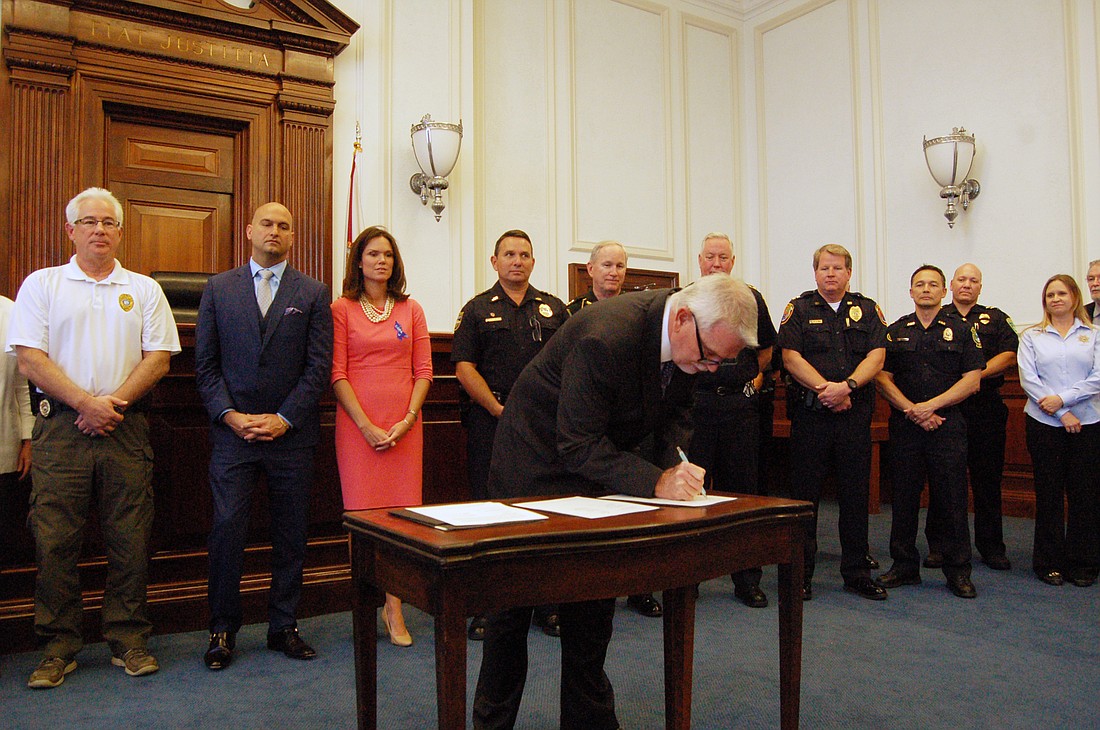
By Leslie Scott Jean-Bart, Family And Children Section Chair
In 2010, the U.S. Commission on Civil Rights found that African-American students in Duval County Public Schools received a disproportionate amount of discipline. As the severity of the disciplinary action increased, the overrepresentation of African-American students receiving the harsher discipline increased.
Many of you may have heard of the “school-to-prison pipeline,” which describes the policies and practices that push students – particularly students of color and students with learning disabilities – out of school and into the juvenile and criminal justice systems.
According to the ACLU, Florida schools refer students to law enforcement 30 percent more often than the national average. Florida schools are more than twice as likely to refer black students and 3.25 times as likely to refer students with learning disabilities to law enforcement. Law enforcement is nearly three times as likely to arrest black students at school and 7.8 times as likely to arrest students with learning disabilities at school.
Students today face zero tolerance policies and a greater presence of law enforcement involvement in school discipline than prior generations. The school-to-prison pipeline describes a trend where typical adolescent behaviors are now criminalized.
During the 2016-17 school year, the number of suspensions outside of school grew 7 percent in Duval County Public Schools. However, the number of suspension days out of school decreased. The school district is examining school disciplinary methods, zero tolerance policies, cultural competency, equity and implicit bias in schools and classrooms.
The school district also uses “restorative justice” such as mediation, mentoring, parent shadowing, teacher-student mediation and student accountability.
Andrew George is a certified teacher and project director for the Evening Reporting Center and Operation Save Our Sons’ Difference Makers Program.
The Evening Reporting Center is an option available to some juvenile offenders that allows them to stay in school and at home instead of being sent to a secured detention center.
“The program lasts three weeks and requires the juveniles attend the center Monday through Friday from 2 p.m. to 8 p.m. and on Saturdays for community service,” George said. “The juveniles are taught life skills, emotional skills and receive academic assistance among other services that are provided. Last year, the program had a 90 percent completion rate. So far this year, we have a 100 percent completion rate.”
After completion of the Evening Reporting Center, juveniles can voluntarily join the Operation Save Our Sons’ Difference Makers Program where they continue to receive services including career exploration and mentors.
“Of the 11 boys in the program, only one re-offended and that was after he moved to Miami,” said George.
Studies have shown that if a student is not reading on grade level by the second or third grade, they are more likely to enter the school-to-prison pipeline, said Angie Nixon, a well-known community advocate who works in the New Town area.
“At S.P. Livingston Elementary, we have retired educators working with second- grade students on reading achievement. In addition to working with students, we also work with parents to show them how they can help their child and how to use technology,” Nixon said.
At the Interfaith Coalition for Action, Reconciliation & Empowerment Nehemiah Assembly on April 23, Jacksonville Sheriff Mike Williams was praised for reducing youth arrests and emphasizing the issuing of civil citations instead.
According to Williams, citations now account for more than 90 percent of youth contacts. This is a significant improvement from prior years, due to a May 2017 Memorandum of Understanding which notes that qualified juveniles who commit misdemeanor or municipal law violations – including misdemeanor battery – are eligible to receive a civil citation to enter the Teen Court program, rather than be arrested and enter the criminal justice system. Juveniles who successfully complete the program have no arrest record of their offense.
These are just a few examples of the programs available in Duval County to address the school-to-prison pipeline. It is clear that this is a complex problem that requires multifaceted solutions.
School districts, parents, students, policymakers, law enforcement, prosecutors, public defenders, judges, mental health counselors, community leaders and community organizations must continue to work together to find solutions and implement policies and practices that address the school-to-prison pipeline.
The Jacksonville Bar Association Family and Children Section’s Legal Needs of Children Committee is working on a school-to-prison pipeline project. If you are interested in joining the work on this important project, please let us know.
Leslie Scott Jean-Bart is a partner at Terrell Hogan Yegelwel focusing on personal injury.